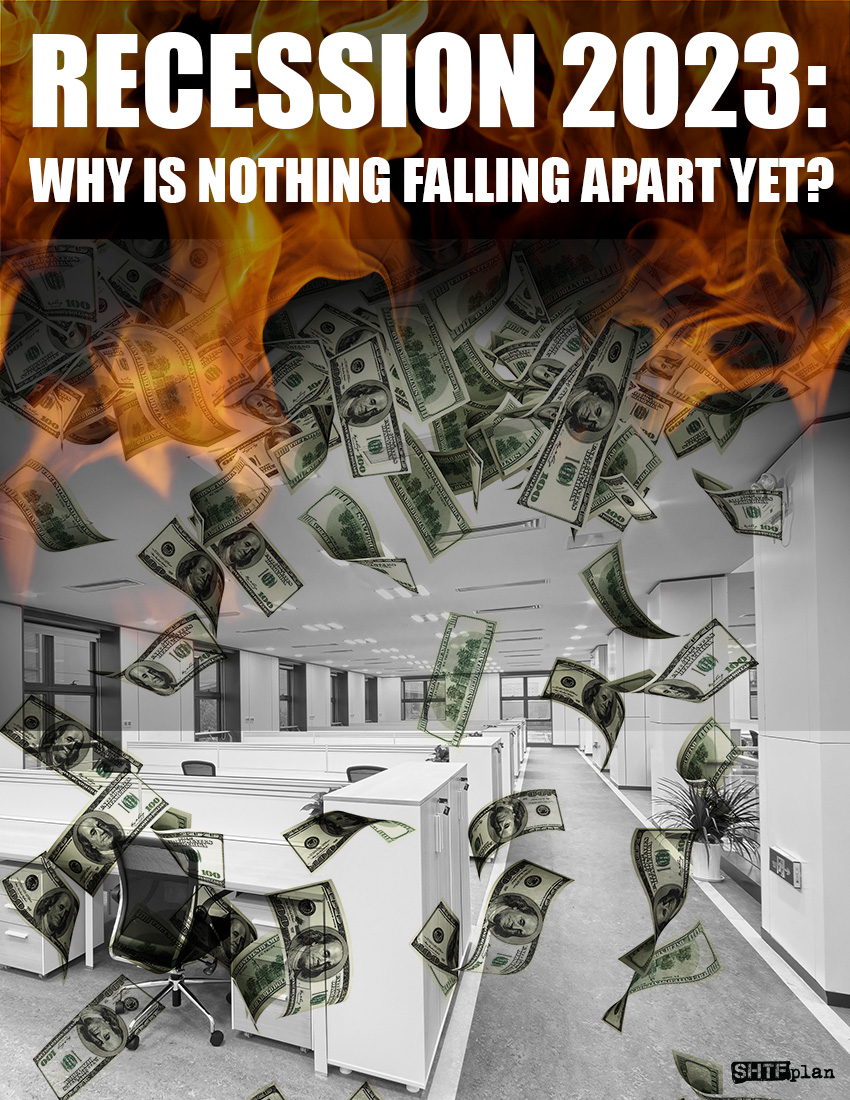
TRUMP SAYS: HUNTER MAKES FORTUNE FROM SHADY DEALS!
BIDEN FAMILY STINKS TO HIGH HEAVENS OF CORRUPTION!
DON'T GET LEFT OUT: HUNTER MUST BE STOPPED!

This article was originally published by Ryan McMacen at The Mises Institute.

Throughout much of human history, a political ruler was often considered to be only as good as his ability to distribute gifts, booty, and other material rewards to his most valuable and loyal servants.
In the “barbarian” days of northern Europe, military men expected their kings to lead them to booty, and to distribute gifts to the best fighters after the battle was won. In later ages, the more powerful kings could dole out titles of nobility, lands to faithful servants, and bureaucratic offices with hefty salaries to trusted advisors.
In exchange for all this largesse, subjects could offer their personal loyalty, but they could also offer military services, special know-how, and help in drumming up additional support for the crown. Those kings who could distribute the most gifts could often expect the most loyalty and assistance from others. After all, here was a king who could make you rich. Offering “help” to the rich and powerful has often come with many potential benefits. Few go to kings anymore for gifts of swords and gold. But the game has not fundamentally changed.
In the modern world, the kings have largely been replaced by faceless bureaucratic regimes composed of countless agencies, commissions, panels, committees, and executive officers. Regime executives can still dole out jobs to loyalists and favored interest groups. Policymakers can rewrite laws and regulations to favor those who can offer the regime something in return.
For ordinary people, who don’t get many favors from the regime, there is a big downside in this game. The riches go to the politically powerful, and not to those who work the hardest or are the most productive. Wealth is continually redistributed through a process of state coercion rather than through the voluntary market process. As a result, wealth flows into industries and firms on the basis of how much they’re valued by policymakers.
Politicians know this is a problem so they try to play both sides. We hear from politicians every election cycle about getting “big money” out of politics. Elizabeth Warren and Bernie Sanders both made this notion central to their presidential campaigns.
But what can really be done about it? People like Sanders, not surprisingly, think the answer is in more government regulation. In practice, however, the solution lies only in reducing the power and wealth of the regime.
Nowadays, in order to secure wealth and favors from the regime, pressure groups hire lobbyists and public relations consultants. Powerful corporations go to the regime seeking tax breaks, subsidies, and anti-competitive regulations. Today we call this “rent-seeking” (from an old definition of the word “rent” once favored by economists). These rent-seeking firms want access to the treasure trove of wealth hoarded by the regime.
And why shouldn’t these corporate interests and pressure groups seek favors? In the United States, the federal government in 2020 controlled a budget of more than six trillion dollars. Moreover, the same government also has control over countless regulations and statutes that can make or break one’s business or household budget.
It’s easy to figure out where to go if one’s looking to protect or enhance one’s livelihood. Indeed, rent-seeking by pressure groups and corporations is the natural outcome in any polity where the regime controls immense amounts of wealth.
The answer to all of this is simple—although certainly not easy to accomplish. First, if we want less rent-seeking, we must reduce the benefits of rent-seeking in the first place. This means stripping the state of much of its ability to dole out rewards to those seeking special favors. It means reducing the size of the state and its coffers overall. It means stripping federal policymakers of their power to regulate the economy for the benefit of some at the expense of others.
Without these powers and funds, the federal government suddenly becomes a much less fruitful target for lobbying, bribes, and other means of obtaining special favors.
There are, of course, many obstacles to reductions in a regime’s size and scope in terms of the wealth it controls. Political scientists have demonstrated this for years with theories like the so-called “iron triangle” which shows how interest groups, legislators, and bureaucrats work together to increase or safeguard the regime’s control over resources. Just as the kings of old increased their own power and influence by controlling the flow of resources to the king’s subjects, today’s policymakers also know they can increase or preserve their power by being able to control who gets what, when, and how.
A second strategy for reducing the power of interest groups and corporate cronyism lies in decentralizing the power of regimes.
As noted by Murray Rothbard in his history of economic thought, one of history’s most notable surges in rent-seeking behavior began with the rise of absolutism in Europe. As European regimes centralized political power, they also created a system of “state-building, state privilege, and what might be called ‘state monopoly capitalism.’” This was also characterized by a system of “heavy royal expenditure, of high taxes, of …inflation and deficit finance.” In other words, it was an era in which the rapidly-centralizing regimes seized unprecedented amounts of control over national economies, and doled out privileges accordingly.
Moreover, as suggested by Baysinger, et al, as regimes become more powerful, it makes more sense to devote more resources to rent-seeking. As regimes centralize, “the relative costs of negotiating favored treatment with a state in which authority [is] vested in a central figure” is falling.” If, on the other hand, regimes are decentralized, this raises the cost of rent-seeking and make outcomes more difficult to predict. In other words, rent-seeking declines when “the costs of negotiating and enforcing exclusive rights [is] relatively higher.”
We can see how this has played out in the United States. Prior to the New Deal, most government spending in America was done at the local level. The federal regulatory state was weak. This meant if one was seeking government favors, there was no easy single target form which immense rewards could be reaped. Large corporations and pressure groups could lobby for benefits state-by-state and city-by-city. But that’s expensive and time-consuming. Certainly, many smaller organizations sought favors from state-level legislatures and bureaucrats. But the fractured political system limited the ease and extent to which and the single-interest group could obtain sizable government benefits. And decentralization certainly made it harder to gain national prominence and influence.
That all changed with the New Deal and throughout the second half of the twentieth century as the federal government began to outspend the state governments and as immense new powers were now held by a well-funded and powerful federal government. It is no coincidence that 9 of the 20 wealthiest counties in America are suburbs of Washington, DC. The symbiotic relationship between pressure groups and the regime is very rewarding.
Today, the political system really is in many ways what H.L. Mencken suggested when he described elections as a sort of “advance auction of stolen goods.” The only answer lies in reducing the number of stolen goods available or at least making it more costly to get them.

It Took 22 Years to Get to This Point
Speaking to author and podcaster Dana Parish, former Centers for Disease Control and Prevention...
The United States just made a decision that could lead to World War 3. The current ruling class...
This article was originally published by Lance D. Johnson at Natural News. In the global war to...
Russia has just announced that conscription in the former Soviet Union is "unnecessary" as...
Commenting Policy:
Some comments on this web site are automatically moderated through our Spam protection systems. Please be patient if your comment isn’t immediately available. We’re not trying to censor you, the system just wants to make sure you’re not a robot posting random spam.
This website thrives because of its community. While we support lively debates and understand that people get excited, frustrated or angry at times, we ask that the conversation remain civil. Racism, to include any religious affiliation, will not be tolerated on this site, including the disparagement of people in the comments section.


In keeping with the law against emoluments, hold civil servants to lifelong vows of poverty, as though they are wards of the state and have not succeeded in regulatory capture of every industry. I can name different depts, headed by someone who looks like that Walrus from Alice in Wonderland. Why does his tax payer supported house look like a mall? The small govt lifestyle can be monastic.
We are a bastardized version of the Attic or Solonian Republic, leaving many of it’s social institutions in ancient history. Under timocracy, you would not be eligible to rule over more constituents than you could physically feed. Social rank was measured in bushels. Under sortition, those eligible for office would have been chosen by random drawing, not the democratic vote. Who would you corrupt, then? To whom would you pander?
Answer: MONEY
Jakartaman,
To the point, the most revalent, and the best answer.
Not like some AI program.
Corporate and special interest lobbies are never going away. There is massive amounts of never ending money moving around from corporate lobbies, and many special interest lobbies are little more than surrogates acting in behalf of officialdom to alter our society, culture, thinking, beliefs, and behavior. Therefore, one group enriches officials, and the other helps increase their power. Lobbies are going nowhere.
Lobbying should be illegal as it is highly unethical because it rarely if really ever benefits the American people, only those with the money or those who have something to offer an official (whether they elected or appointed). It is so lucrative that many officials after leaving office become lobbyists themselves. And officialdom, regardless of party, refuses to pass real lobbying reform. There are even entire families involved in lobbying. Officialdom says it’s all “legal”, but if we, the citizens, conduct business the same way we would certainly go to jail.
There is grotesque corruption, malfeasance, self-interests, in every piece of official business. It is systematic, ingrained, and pervasive, with the blessings of the State. In fact, the nature of our gov’t is so perverted it cannot function honestly and openly, and it is intentionally this way.
The State, and its gov’t, officialdom and minions are beyond any redeeming. It doesn’t want redeeming, it revels its illicit and illegitimate power and position. Nietzsche said “Everything the State says is a lie, everything it has it has stolen”. Proposals and ideas abound to correct this national disgrace. However, this disgrace is intractable, irreversible, so nothing will work.
There is one, and ONLY one solution – Secession. And not just Southern states, but any state that does not want to get dragged into total submission to the fed. State. Most state politicians are complicit with the fed. State in further subordinating their states and their citizens to the illegitimate powers of the Fed. State. States are sovereign, and Constitutionally so, it’s about time they start acting like it.